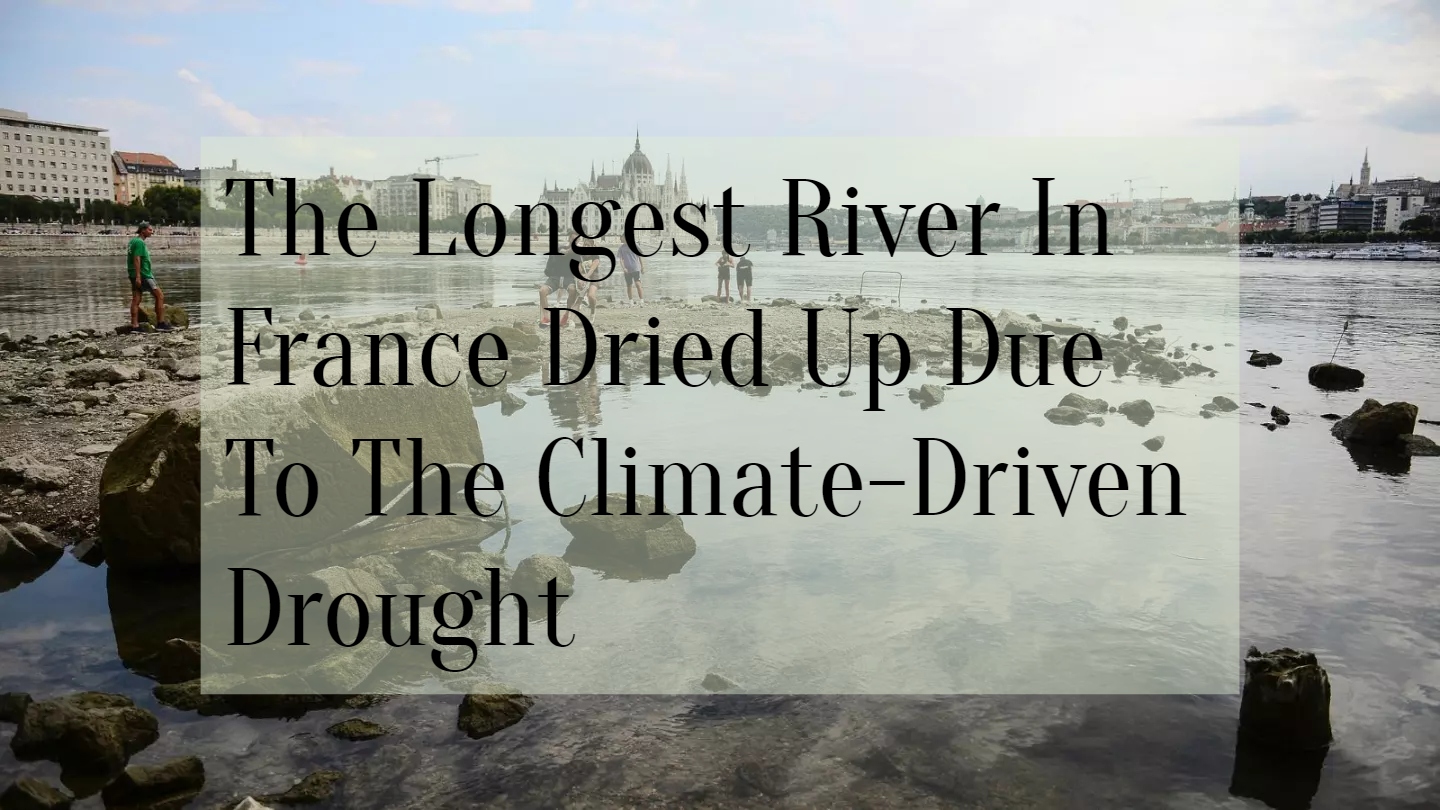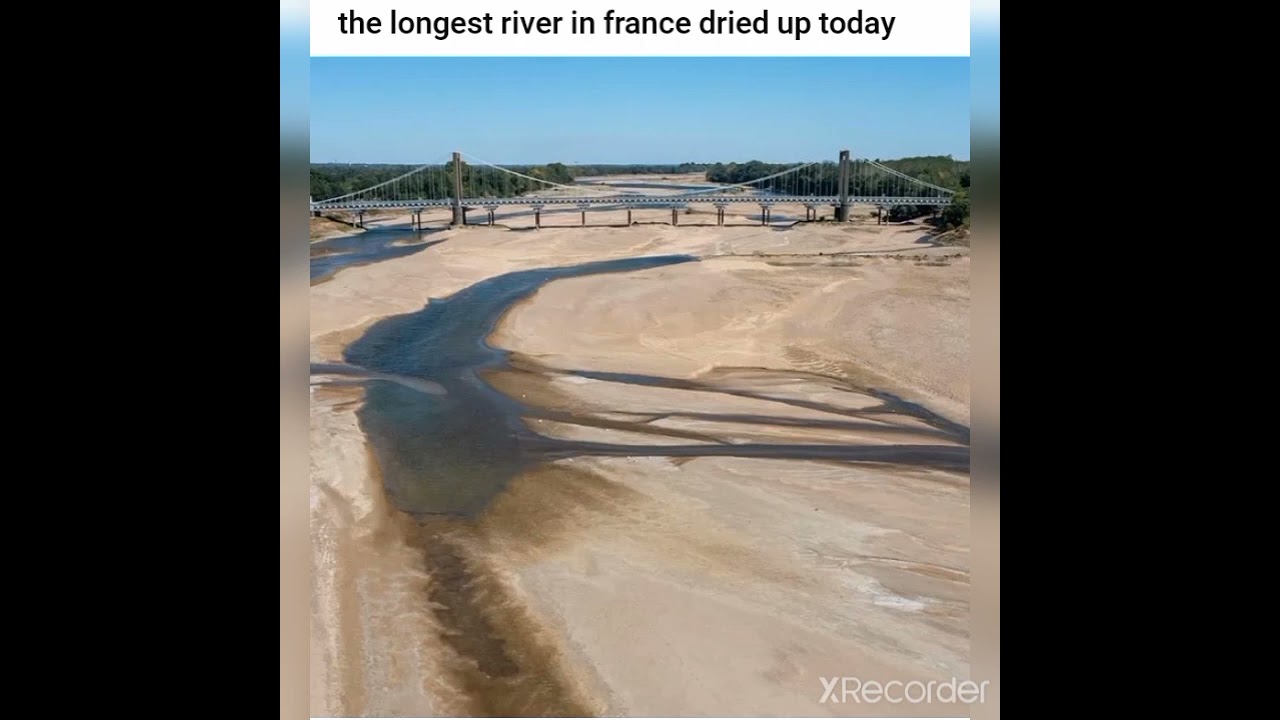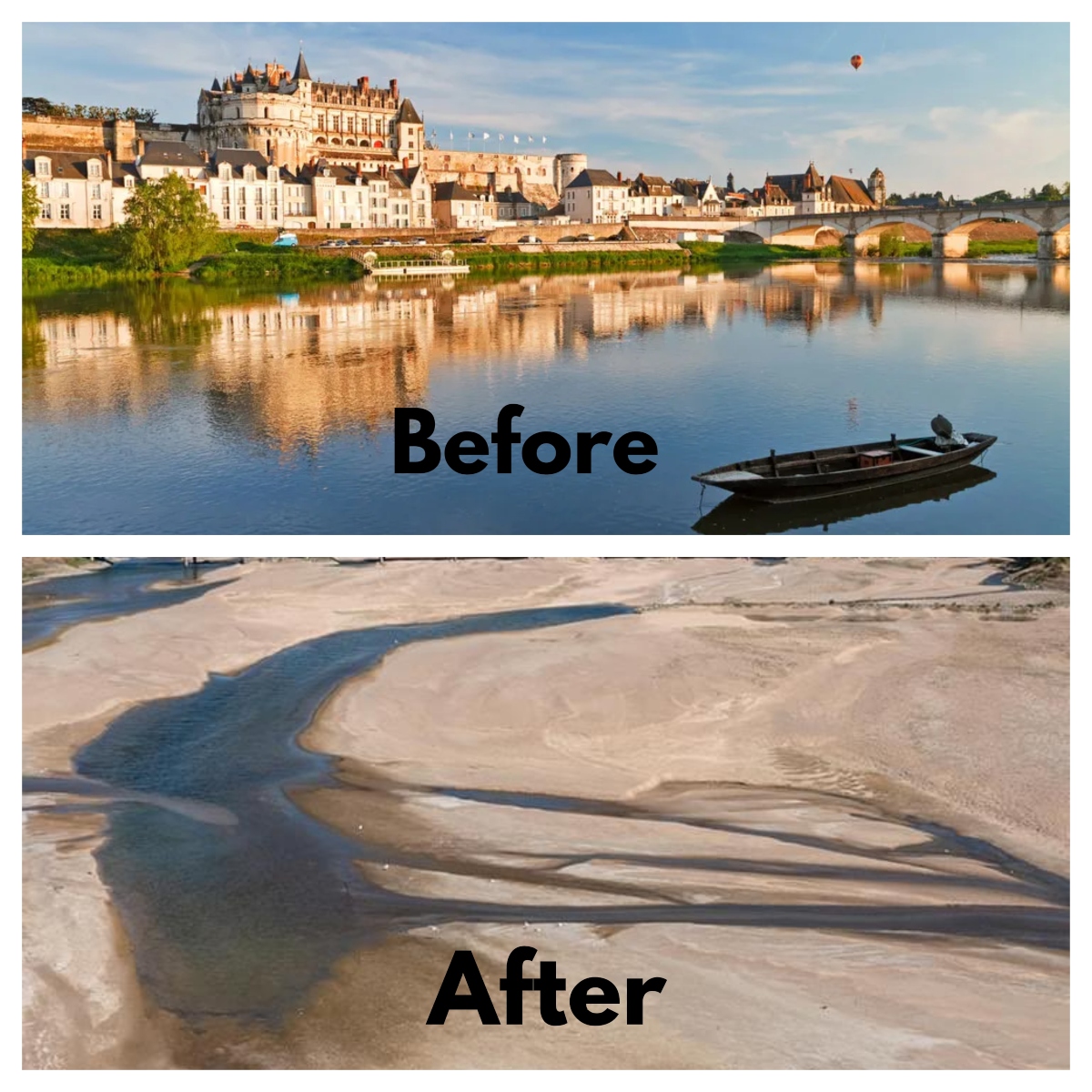The Longest River In France Dried Up Due To The Climate-Driven Drought
The longest river in France dried up due to the climate-driven drought. When did this happen? It happened on 11 August 2022.
Author:Xander OddityReviewer:Raven NoirAug 12, 2022134 Shares2.1K Views

The longest river in France dried up due to the climate-driven drought. When did this happen? It happened on 11 August 2022.
Many of France's powerful rivers, notably the Loire and the Dordogne, have in some locations been reduced to a trickle as the country continues to experience its worst drought on record, and in other areas, lakes and reservoirs have been badly affected.
Almost the whole country of France is currently subject to some kind of water restriction, and when supplies run low, many communes have had to ration or even turn off their tap water completely.
Many subsurface water supplies have dried up due to the climate crisis-related drought, which has been exacerbated by an extremely hot summer, but the nation's rivers are also affected. The longest river in France dried up due to the climate-driven drought too.
Rivers are slowing to a trickle from the Loire to the Dordogne.

The longest river in France dried up today...
Also, many lakes in France are almost dry, and water levels in reservoirs are dangerously low.
For locals who live too far away to take day trips to the sea, several lakes in inland locations feature "beaches" that include sun loungers, bars, cafés, and gift shops.
Due to a lack of water, some lakeside beaches were forced to close.
The biodiversity and the livelihood of France's artisan salt producers, who make fleur de sel from salt marshes around the country's coastline, are both threatened by the drying up of marshland.
These spectacles have occurred again around Europe, especially in Germany and Italy, where the Rhine, which in normal times transports a ton of freight flow, is critically low and has had to restrict shipping. In Italy, the Po River has dried up.
This major drought not only affected France but also Europe. Europe's major rivers are decreasing under the most severe drought caused by a changing climate in decades.
Seeing huge rivers like the Loire, Po, and Rhine sometimes reduced to a trickle is upsetting enough.
The present drought, however, is also highlighting just how heavily people rely on them for trade, energy, and transportation.
Particularly alarming is the evaporation of the Rhine. It is anticipated to drop below 40 cm at Kaub, a chokepoint close to Frankfurt.
For certain larger ships transporting supplies of oil, coal, and gas, this would make them impenetrable.
Due to Russia's restrictions on gas flow and the country's current energy crisis, German power plants are especially dependent on the deliveries.
France's Rhône and Garonne rivers, which use the most nuclear energy in the EU, have become controversial recently.
Since temperatures were too high for river water to be used to cool the plants, electricity utility company EDF was forced to curtail output at some of its power plants.
A Reddit user has something interesting to say about it, "Across two-thirds of France, a state of crisis has been declared by the government, with rainfall down by some 85%.
Some parts of the Loire river have virtually dried up completely. And for those who don't know, the Loire is the longest river in France: Loire River, longest river in France, rising in the southern Massif Central and flowing north and west for 634 miles (1,020 km) to the Atlantic Ocean, which it enters south of the Bretagne (Brittany) peninsula."
Anothersaid, "and Three nuclear plant depend on Loire river reactor cooling."
FrenchFranck shared some information in response to the above comment, "Four nuclear power plants : Chinon, Saint Laurent, Dampierre and Belleville. Producing 6700MW right now. There is still a lot of water available even it is really very dry this year.
Cordemais (coal) depends also on the Loire."
Conclusion
Climate change is affecting the world badly. Rivers drying up, exploding trees, heat domes, poisonous rainwater everywhere, and Antarctica melting faster than expected due to climate change.
It affected Europe and its rivers too. As a result, the longest river in France dried up due to the climate-driven drought.
Jump to

Xander Oddity
Author
Xander Oddity, an eccentric and intrepid news reporter, is a master of unearthing the strange and bizarre. With an insatiable curiosity for the unconventional, Xander ventures into the depths of the unknown, fearlessly pursuing stories that defy conventional explanation. Armed with a vast reservoir of knowledge and experience in the realm of conspiracies, Xander is a seasoned investigator of the extraordinary.
Throughout his illustrious career, Xander has built a reputation for delving into the shadows of secrecy and unraveling the enigmatic. With an unyielding determination and an unwavering belief in the power of the bizarre, Xander strives to shed light on the unexplained and challenge the boundaries of conventional wisdom. In his pursuit of the truth, Xander continues to inspire others to question the world around them and embrace the unexpected.

Raven Noir
Reviewer
Raven Noir is a captivating and enigmatic news reporter who unravels mysteries with a relentless pursuit of truth. Possessing an insatiable curiosity and an astute mind, Raven delves into the depths of complex stories, unearthing secrets that lie beneath the surface. With a masterful grasp of deduction and observation, Raven stands as a beacon of fearless investigation.
In the realm of journalism, Raven is known for his enigmatic presence, drawing people in with an aura of intrigue. Driven by an unwavering passion for unveiling the truth, Raven Noir continues to shed light on the darkest corners of society. Through captivating storytelling and unwavering determination, he challenges conventions and uncovers enigmatic secrets that lie just beyond the surface.
Latest Articles
Popular Articles
